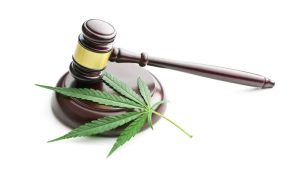Unraveling Cannabis’s Complex Impact on Athletic Endurance

In a recent study published in the Journal of Applied Physiology, researcher Christian Cheung delves into the impact of cannabis on athletic endurance, highlighting the unique challenge of conducting such research. Participants were required to pass a urine test confirming weekly drug use before exploring the effects of cannabis on their endurance in a laboratory setting. This necessity underscores the ongoing discomfort funding bodies and ethics committees have with cannabis research.
The backdrop of this study is the growing global relaxation of marijuana laws and the ongoing debate about its role as a potential performance-enhancer in sports. This discussion has gained prominence following notable incidents like Sha’Carri Richardson’s suspension from the Olympic Trials in 2021 due to a positive cannabis test. Endurance sports, in particular, have a storied connection with cannabis, with some athletes suggesting its benefits for pain management, nausea prevention, and stress reduction.
Despite some athletes’ anecdotal evidence suggesting performance benefits from cannabis, Cheung’s study found no such enhancement. Conducted at the University of Guelph’s Human Performance & Health Research Lab, the research examined the effects of THC (the psychoactive component of cannabis) and CBD (a non-psychoactive component thought to aid recovery) on athletic performance. Participants, who were mainly recreational athletes, underwent a series of exercises under various conditions: control, smoking THC-rich cannabis, vaping THC-rich cannabis, and vaping CBD-rich cannabis.

The findings revealed a decrease in performance with THC, showing no effect from CBD. Specifically, the study observed a significant reduction in power output during exercises following THC consumption, suggesting a detrimental impact on endurance. This contradicts some earlier findings and adds a layer of complexity to understanding cannabis’s role in athletic performance.
Further investigation into why THC consumption led to decreased performance revealed intriguing physiological and psychological dynamics. Despite an increase in heart rate during warm-up exercises, no significant differences in heart rate or other physiological measures were noted during the intense exercises. This raises questions about whether the impact of THC is more psychological, potentially affecting motivation or cognitive functions necessary for optimal performance.
The study also contrasts with research on the subjective experience of exercising under the influence of cannabis, which has reported enhanced feelings of euphoria and enjoyment, despite increased perceived effort. These mixed outcomes highlight the nuanced and sometimes contradictory effects of cannabis on both the body and mind during physical activity.
This research contributes to a growing body of work aiming to understand the complex relationship between cannabis use and athletic performance. It challenges the notion of cannabis as a performance-enhancing substance and underscores the need for further investigation, particularly into the psychological effects of THC on athletes. The evolving landscape of cannabis research continues to unravel the intricacies of its impact on human performance, with the ultimate goal of informing policy, athletic regulations, and individual choices within the sports community.





